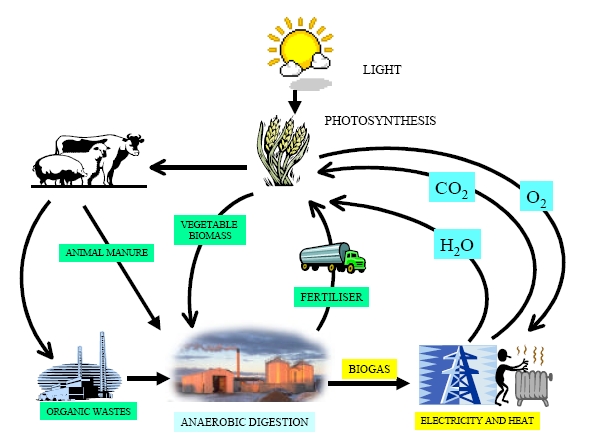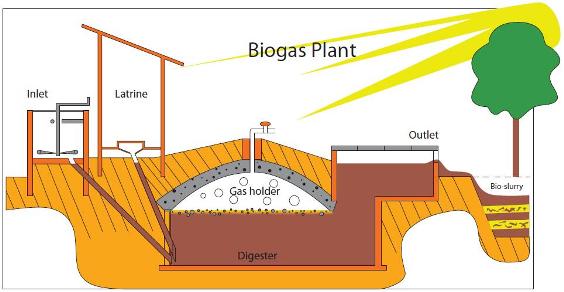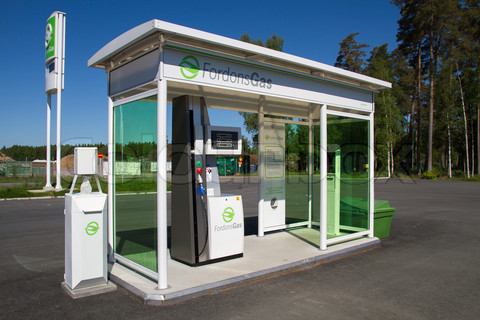It seems like everywhere you look there are more and more fossil fuel alternatives being investigated. From ethanol to air, literally everything has been considered. Biogas is another one of these possibilities. It might be a term that is not familiar to some but it is not all that new of a resource because it is completely natural. Biogas comes from the anaerobic digestion of organic matter. In simple terms, this means that organic waste is compressed in a certain way that creates biogas which can be used as fuel. In fact, it is so natural that it almost makes one wonder why we did not consider using it sooner.
Biogas is created in landfills. When organic matter such as compost or natural waste is buried without oxygen, it starts to create a gas. This is biogas and it can be contained and used to produce energy. A landfill that is properly designed will produce biogas for several years. This gas is released into the earth’s atmosphere, so it just makes sense that harnessing it and making use of it would be a better solution. As far as natural resources go, this might be one of the best.
For the most part biogas is made up of carbon dioxide and methane. However, quite often there are also varying quantities of hydrogen, oxygen, nitrogen and various other natural gases. Special wells have to be drilled in order to properly get biogas out of a landfill. It is a much more efficient way of capturing all of the gas. At this time there is a train in Sweden that is currently powered by biogas. The use of sewage and cow waste is the primary fuel source for that train. It has been determined that biogas has virtually no trace of toxic emissions in comparison with fossil fuels.
There are several great benefits to using biogas as fuel. Not only does it produce much needed energy but it also eliminates all of the organic waste in landfills by giving it a purpose. This in turn also improves conditions in landfills regarding insects and the reduction of pathogens. Reducing the amount of methane in the earth’s atmosphere is also a good idea which biogas helps with as well. Those that are interested in the benefits of biogas should do the necessary research in order to understand it better. As consumers and members of this earth, we all must do our part to make an educated choice.
There are a handful of disadvantages associated with biogas as well. The actual product value of biogas is incredibly low, which does not necessarily make it economically feasible. The process that is required to obtain biogas can also be quite expensive since special wells must be drilled. There is also reason to believe that some of the gases in biogas are corrosive to metal. This can be a problem because metal is a major component of automobile engines. Weighing the benefits and disadvantages is necessary in order to conclude if biogas will work for you.


